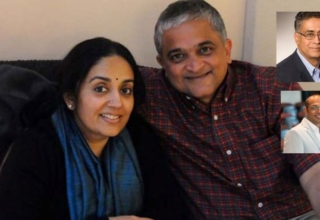A rudder of national vision and policy intervention needed to provide it velocity
The 14th edition of FICCI Higher Education Summit held on November 10-11 (2016) in New Delhi provided a perfect setting for congregation of educationists and experts from diverse backgrounds and interests to open their minds on road ahead for higher education deliverables in the complexity of times that the world lives in today. And the message that emerged for India was: leave chaos and move in a clear cut direction with open mind.
“There must be a national plan. Strengthen the quality of higher education and make it relevant for citizens of India. Don’t lose that goal. Higher education should be relevant for overall society and meet the current and future needs of Indian society, remember 70% of your women aren’t still in labor market,” reminded Francisco Marmolejo, Higher Education Coordinator of the World Bank, adding that Indian higher education system has excessively fragmented in comparison to USA and China. Going a step further, he advised HEIs in India to align with the global trend and compression of knowledge in interest of time as Indians take about 35% more time for the same curriculum as the rest of the world. “How does India’s system compare with the rest of the world should be understood? Two, there must be a strategy to identify partners and India should pay attention to the world beyond USA and Commonwealth nations. Three mobility of faculty is very important for internationalization education here,” he added.
Offering a refreshing perspective particularly in the backdrop of criticism over expansion of IITs & IIMs in the last decade, Ashish Nanda, Director of IIM-Ahmadabad made a bold suggestion: ‘Build Magnets” of excellence and reputation. “India is a perfect learning lab given its diversity and a vibrant and young education hungry population. It needs positive spill over of institutions like IITs/IIMs all over for they will have magnetic effect as we need both excellence and reach. Investing in other brands may take much time.” He said that at the same time, autonomy must be there inside out. “We need to focus on rating rather than ranking. Allow institutions to experiment and let them stay open to the world. Tolerance, openness and enabling regulations will help India become a powerhouse of education,” he added.
Seeking to protect the gullible Indian student by marketing savvy international institutions and at the same time ensuring internationalization of Indian higher education, Prof Furqan Qamar, General Secretary, AIU stressed the need of balancing national and international perspectives. “Safeguarding interests of stakeholders is a policy challenge as we strive to making international collaborations work to the advantage of a better higher education experience,” he said. Making a radical suggestion Prof W N Gade, Vice Chancellor Savitribai Phule Pune University said that it would be ideal to select 50 top universities from abroad and persuade them to working with universities in India on common areas of interest with a clear regulation for a joint degree program. “A fine balance between cooperation and completion,” remarked Martine Rahier, VP, European University Assocaition.
Much of the ‘mysterious’ Europe has remain fascinating for a large number of Indians, but after the advent of EU, the linkages between EU countries beyond UK and India have grown speedily in several areas including higher education. And, at the above-said conference, Martine Reicherts, Director General, EU, Education & Culture who delivered a special address in the plenary left lasting impressions on EU as a well-meaning education destination for international students. The two aspects she laid emphasis was learning to learn and quality of life. “Education today is at the centre of EU policies for obvious rea
sons. It plays an important role in keeping society together. An inclusive education will keep people together. So we need international at levels ,” she said. Talking on the advantages of ‘tourism’ student or international students she was of the view that education beyond classrooms like learning about culture and traditions, hanging out in the evenings and interaction of people from diverse backgrounds are likely to make a student adoptive to labor market, tolerant, confident and entrepreneurial. “This is particularly useful as we need problem solvers,” she added.
Make in India
‘Make in India’ has little meaning unless you do design in India remarked Prof Ashok Jhunjhunwala of IIT-Madras while presenting a case studies of how his institution got its IITM Incubation Cell (IITMIC) Research Park running incredibly
(This story appears in Dec issue of Curriculum)











